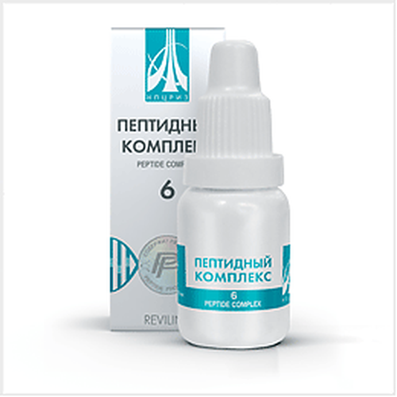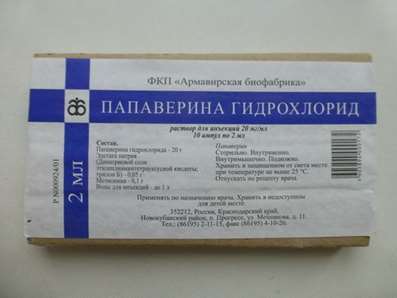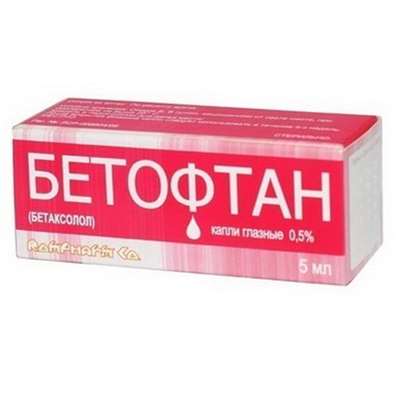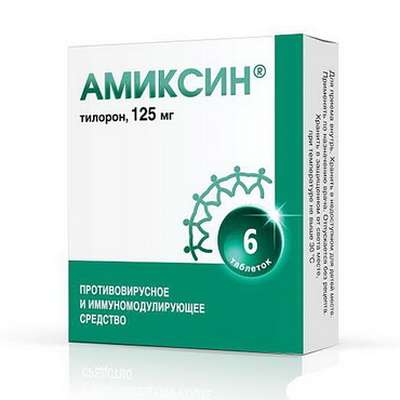Instruction for use: Tenoten
I want this, give me price
Dosage form: lozenges
Active substance: Antibodies to the brain-specific protein S-100
ATX
N05BX Other anxiolytics
Pharmacological groups:
Anxiolytics; Nootropics [Nootropics]
Anxiolytics; Nootropics [Anxiolytics]
The nosological classification (ICD-10)
F06.6 Organic emotionally labile [asthenic] disorder: Somatogenic depression; Somatogenic psychosis
F41.9 Anxiety disorder, unspecified: Neurotic disorders with anxiety syndrome; Severe anxiety; Neuro-like symptomatology; Neuro-like disorders; Neuro-like conditions; Neuroses with anxiety symptoms; Neuroses with a sense of anxiety; Acute situational and stress anxiety; Acute attack of anxiety; Severe Anxiety; Situational Anxiety Disorder; State of anxiety; Anxious and delusional component; Alarming state; Anxiety; Anxiety Disorders; Anxiety syndrome; Sense of anxiety; Alarm conditions; Chronic neurotic anxiety; Susto; Psychopathy with a predominance of anxiety and anxiety; Anxiety disorders in neurotic and neurosis-like states; Anxious neuroses; Anxious and delusional state; Acute situational stress alarm; Depressed mood with elements of anxiety
F43 Reaction to severe stress and adaptation disorders: Stressful condition; Stress disorders; Adaptation disorder
F45 Somatoform disorders: Psychosomatic disorder; Psychosomatic disorders; Psychosomatic diseases; The state of excitement in somatic diseases; Functional psychosomatic disorders of the cardiovascular system
F48.9 Neurotic disorder, unspecified: Neurosis; Secondary neurotic symptom; Other neurotic conditions; Neurosis with increased irritability; Neuroses; Neuroses of all kinds; Neuroses with retardation; Neuroses of the heart; Neurotic disorders in alcoholism; Neurotic disorders with retardation; Neurotic disorders with anxiety syndrome; Neurotic reactions; Neurotic symptoms with alcoholism; Neurotic states; Neurotic syndrome; Neurotic disorder; Attack of neurological dysfunction; School neurosis; Emotional Stress
F60.3 Emotionally unstable personality disorder: Mood swings; Mental lability; Emotional fence; Emotional detachment; Mood Change; Lability of mood; Instability of emotional background; Mixed emotional disorders; The state of emotional stress; Emotional lability; Emotional tension; Emotional instability; Emotional instability; Mood disturbance; Mood disorders; Decreased mood; Deterioration of mood; Mood swings
G90 Disorders of autonomic [autonomous] nervous system: angiodystonia; vasovegetative manifestations; vasomotor dystonia; vegetative dystonia; autonomic dysfunction; vegetative lability; Vegetative-vascular disorders; autonomic dysfunction; vasoneurosis; Vegetative-vascular dystonia; vegetative-vascular disorders; Vegetative-vascular disorders; Dystonia vegetovascular; Dystonia neurocirculatory; neuro disorder; Cardiopsychoneurosis; Neurocirculatory dystonia of hypertensive type; Primary neurovegetative syndrome; The syndrome of vegetative dystonia
G96.9 Disorder of central nervous system, unspecified: Toxic injury to the central nervous system; CNS depression; Violation of the functions of the central nervous system; Functional deficiency of the nervous system; Traumatic injury of the central nervous system; Hereditary disease of the central nervous system; Hereditary diseases of the nervous system
I67.9 Cerebrovascular disease, unspecified: lacunarity status; Angioneyropatiya; Arterial angiopathy; brain hypoxia; Encephalopathy; cerebral vascular disease and age-related; Coma in violation of cerebral circulation; Metabolic and cerebrovascular disorders; Violation of the blood supply to the brain; Cerebrovascular accidents; Violation of brain functions; Violation of the functions of the cerebral cortex; Violation of cerebral circulation; Cerebrovascular insufficiency; Acute cerebrovascular insufficiency; Acute ischemic attack; The defeat of the brain vessels; The progression of destructive changes in the brain; Disorders of cerebral circulation; The syndrome of cerebral insufficiency; Cerebral vascular insufficiency; Vascular encephalopathy; Vascular diseases of the brain; Vascular brain disorders; Vascular lesions of the brain; Functional brain disorders; Chronic cerebral ischemia; Chronic heart failure; Chronic cerebrovascular insufficiency; Chronic cerebrovascular insufficiency; Chronic violation of the blood supply to the brain; Cerebral insufficiency; Cerebral organic failure; encephalasthenia; cerebroasthenic syndrome; Cerebrovascular disease; Cerebrovascular pathology; cerebrovascular disease; cerebrovascular disorders; cerebrovascular disorders; Encephalopathy discirculatory
R41.3.0 * Reduced memory: memory loss; memory impairment; The weakening of memory; memory impairment; Forgetfulness; Violation memory; Memory impairment in elderly patients; memory impairment; Memory impairment in relation to recent events
R45.0 Nervousness: Stress nervous; Mental stress; State of tension; Stress states; Nervous disorders; Voltage; Tension; Psychoemotional stress; Stress state; Emotional tension; Feeling of inner tension; Psychoemotional stress in stressful situations; Nerve Stress Reactions; Internal stress; The state of persistent mental stress; Tearfulness
R45.4 Irritability and anger: Neurosis with increased irritability; Outbursts of anger; Anger; Resentment; Increased irritability; Increased irritability of the nervous system; Irritability; Irritability in neuroses; Irritability in psychopathic disorders; Symptoms of irritability; Dysphoria
R45.7 Condition of emotional shock and stress, unspecified: Exposure to stress factors; Exposure to extreme situations; Neuropsychic stresses; Professional stress; Psychoemotional overload and stress; Psychoemotional stress; Stressful condition; Stress; Stress loading; Stressful condition; Stressful situations; Stress of everyday life; Chronic stress; Long-term emotional stress; Psychological stress in air flights; Psychoemotional stress in stressful situations
S06 Intracranial injury: brain injury; brain injury; traumatic brain injury; The traumas of head injury; The consequence of traumatic brain injury; The consequence of TBI; Condition after traumatic brain injury; concussion; Craniocerebral trauma; Traumatic encephalasthenia ; Brain Injury; skull Injuries; Brain Contusion; Cranial trauma; Traumatic brain injury with a predominantly stem lesion level
Composition
Tablets for resorption 1 table.
active substance:
Antibodies to the brain-specific protein S-100 affinity purified * 0.003 g
* It is applied to lactose in the form of a water-alcohol mixture with a content of no more than 10-15 ng / g of the active form of the active ingredient
Auxiliary substances: MCC - 0.03 g; Magnesium stearate - 0.003 g; Lactose monohydrate (lactose) 0.267 g
Description of dosage form
Tablets are flat-cylindrical, with a risk and facet from white to almost white. On the side with the risk is the inscription "MATERIA MEDICA", on the other - "TENOTEN".
Pharmachologic effect
Mode of action - antidepressant, anti-asthenic, anxiolytic, nootropic, neuroprotective, antihypoxic, anti-stress, antiamnestic.
Pharmacodynamics
It has a calming, anti-anxious (anxiolytic) effect, without causing unwanted hypnogenic and muscle relaxant effects. It improves the tolerance of psychoemotional loads. Has a stress-protective, nootropic, anti-amnestic, antihypoxic, neuroprotective, anti-asthenic, antidepressant action.
In conditions of intoxication, hypoxia, after acute disturbance of cerebral circulation, it exerts a neuroprotective effect, limits the damage zone, normalizes learning and memory processes in the central nervous system.
Inhibits the processes of lipid peroxidation.
Modifies the functional activity of the S-100 protein, which conjugates the synaptic (information) and metabolic processes in the brain. Gamak-mimetic and neurotrophic action increases the activity of stress-limiting systems, promotes the restoration of neural plasticity processes.
Indication of the drug Tenoten
Neurotic and neurosis-like conditions, psychosomatic diseases;
Stress disorders with increased nervous tension, irritability, anxiety and vegetative reactions;
Moderately pronounced organic lesions of the central nervous system, incl. Traumatic and discirculatory origin, accompanied by an unstable emotional background, irritability, memory loss, autonomic disorders.
Contraindications
Increased individual sensitivity;
Children under 18 years of age (children and persons under the age of 18 years are shown the use of the drug Tenoten for children).
Application in pregnancy and breastfeeding
The safety of the drug during pregnancy and lactation has not been studied. If necessary, taking the drug should take into account the risk / benefit ratio.
Side effects
When used according to the indications and in the recommended dosages, no side effect was detected. Possible reactions of increased individual sensitivity to the components of the drug.
Interaction
Cases of incompatibility with other drugs have not been recorded so far.
Dosing and Administration
Inside, not during a meal. For 1-2 table. At one time (keep in your mouth until completely dissolved). Take 2 times a day; If necessary, up to 4 receptions per day. The course of treatment is 1-3 months; If necessary, the course of treatment can be extended to 6 months or repeat after 1-2 months.
If there is no persistent improvement in the condition within 3-4 weeks after the start of treatment, you should see a doctor.
Overdose
There have been no cases of overdose to date.
Special instructions
The composition of the drug includes lactose, and therefore it is not recommended to appoint patients with congenital galactosemia, glucose malabsorption syndrome or galactose, or with congenital lactase deficiency.
Due to the activating properties in the action of Tenoten, the last dose of the drug should be performed no later than 2 hours before bedtime.
Release form
Lozenges. For 20 tablets. In a planar cell packaging made of PVC film and aluminum foil. 1 or 2 contour mesh packages are placed in a cardboard box.
Terms of leave from pharmacies
Without recipe.
Storage conditions of the drug Tenoten
At temperatures not higher than 25 ° C, in the original packaging.
Keep out of the reach of children.
The shelf life of the drug Tenoten
3 years.
Do not use beyond the expiration date printed on the package.

 Cart
Cart





